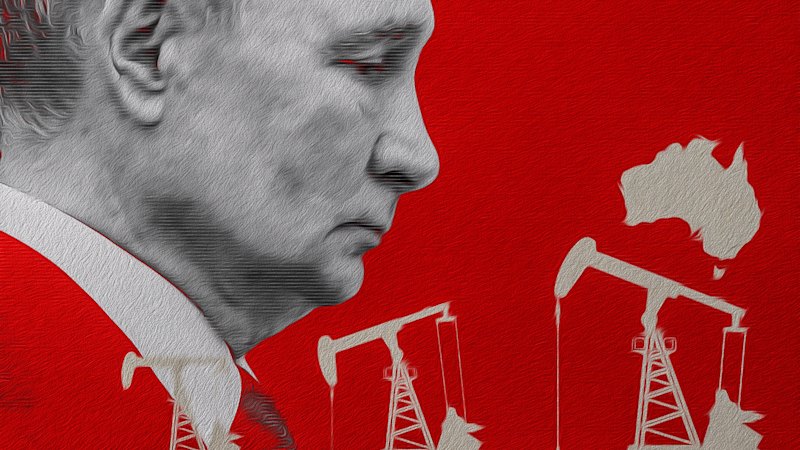
One of Australia’s most influential business figures, Andrew Forrest, founder of Fortescue Mining, has called on the Albanese government to take immediate measures to halt the influx of Russian-origin oil into the country. Forrest warns that existing loopholes in sanctions are empowering authoritarian regimes and undermining Australia’s foreign policy objectives.
Forrest’s comments come in response to the “Blood Oil” investigative series by the Herald and The Age, which revealed the significant amounts of Russian-origin oil entering Australia since the onset of the Ukraine conflict. This trade has reportedly provided critical financial support to Vladimir Putin’s military efforts.
The billionaire philanthropist’s remarks coincide with appeals from the Australian-Ukrainian community for the government to align with a coalition of nations opposing former US President Donald Trump’s contentious plan to resolve the Ukraine war. “No family filling their car with petrol should have to wonder whether their money is helping bankroll Putin’s assault on Ukraine. This should ring alarm bells across Australia,” Forrest stated emphatically.
Sanctions and Loopholes
Forrest has been a vocal advocate for Ukraine since the conflict began, using international business and diplomatic platforms to support its cause. Through the Minderoo Foundation, which he co-founded with his former wife Nicola Forrest, he has contributed $30 million towards de-mining and recovery efforts in Ukraine.
The Centre for Research on Energy and Clean Air, a Finnish non-profit, estimates that Australians purchased $3.8 billion worth of petrol and diesel produced from Russian crude and refined in India between February 2023 and June 2025. This practice allows importers to bypass stringent Australian sanctions that prohibit Russian oil imports, enacted following Putin’s full-scale invasion in 2022.
“Sanctions with loopholes are useless,” Forrest declared. “Australia needs a sanctions regime in line with the European Union, that stops Russian oil being laundered through third countries.”
The European Union has implemented a ban on imports of petroleum products made from Russian crude oil refined in third countries, a move mirrored by the United Kingdom. Australian Foreign Minister Penny Wong has expressed support for these measures but noted the challenges in practical implementation.
Global Responses and Australia’s Position
Wong’s spokesperson stated, “We’re liaising closely with the EU and UK, assessing and consulting on whether there are European regulatory measures we can utilise. The government has made our expectations clear and is taking further action to starve Russia’s war machine of oil revenue.”
In a recent development, Reliance Industries, the largest Indian supplier of fuel to Australia, announced it would cease using Russian oil at its export refinery starting December. Forrest argues that Australia must spearhead efforts to ensure its sanctions laws evolve with global energy markets.
“When fuel made from Russian crude reaches Australia, it undermines our stance on Ukraine,” Forrest said. “We must close these channels and align our values with our supply chains.”
Forrest also emphasized the need for a transition to green energy to cut off support for autocrats like Putin. “To stop tyrants weaponising oil, we need an economy that no longer relies on it,” he asserted.
International Diplomacy and Future Implications
Trump’s draft plan to end the Ukraine conflict involves Ukraine ceding territory in the Donbas region and reducing its military size, despite parts of the area being under Ukrainian control. Over the weekend, leaders from the EU, Canada, Japan, and Britain issued a statement at the G20 summit, welcoming the peace plan but acknowledging it requires further refinement.
“We are clear on the principle that borders must not be changed by force,” the leaders stated. “We are also concerned by the proposed limitations on Ukraine’s armed forces, which would leave Ukraine vulnerable to future attack.”
Australia did not sign the statement, as government sources indicated that Prime Minister Albanese was not invited to the meeting where the statement was drafted, thus excluding Australia from the process.
As the international community grapples with the complexities of the Ukraine conflict and the global energy market, Forrest’s call to action underscores the urgent need for cohesive and effective sanctions that align with ethical foreign policy and energy independence goals.







